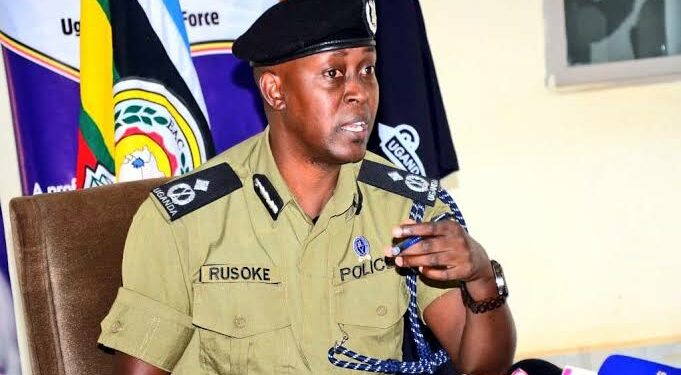In a decisive move to curb insecurity in the country, President Yoweri Museveni ordered a complete cessation of police bond issuance for criminals. The directive, which was communicated during his televised New Year’s Address, has been endorsed by the Uganda Police, with officials emphasizing their readiness to enforce the measure immediately.
Assistant Commissioner of Police (ACP) Kituuma Rusoke, the spokesperson for the Uganda Police, confirmed yesterday that the institution would comply with the presidential directive. He stressed that the measure was non-negotiable and that police would act promptly to ensure its enforcement.
“The directive was given, and it is going to be enforced,” ACP Rusoke stated.
In his address, President Museveni explained that the decision was motivated by concerns over rising insecurity, especially related to theft and other petty crimes. He also pointed out that the current system of granting bond to suspects, particularly in cases involving theft, was contributing to the problem by allowing alleged criminals to return to society before their cases were resolved.
“Who gives a police bond to a village thief when the case is ready for trial?” the President rhetorically asked, highlighting his frustration with what he sees as a growing disregard for justice. The directive follows a broader push to tighten security and ensure the swift processing of criminal cases.
The new order will apply across all levels of the police force, with territorial commanders being tasked with speeding up the investigation process to ensure that suspects are quickly brought to court within the required time frame. President Museveni has also emphasized the importance of holding the police fully accountable for ensuring that these new measures are followed to the letter.
In addition to the changes within the police force, the President revealed that he had personally raised the issue with the judiciary, particularly with the Chief Justice. Museveni urged judicial officers to reconsider their stance on granting bail to suspects facing serious criminal charges, including theft.
The directive builds on a previous recommendation by Uganda’s Principal Judge, Flavian Zeija, who had called for an end to the practice of granting bail to capital offenders. Together, these actions form a broader strategy to reduce criminal activities by tightening the legal framework around suspects involved in crimes like theft, which the President identified as a significant challenge to national security.
Focus on Livestock and Coffee Theft
A key area of concern highlighted by the President in his address was the rise in livestock and coffee theft, which has been affecting communities in various districts across the country. In November, the police carried out operations in regions like Luweero, Nakaseke, and Nakasongola to curb livestock theft, arresting at least 15 individuals and recovering 51 cows, along with several vehicles and motorcycles.
The President also singled out coffee theft as a growing problem. The theft of raw coffee beans has caused farmers to rush to harvest, leading to a decline in the quality of Uganda’s coffee on the international market.
This, Museveni said, is detrimental to the country’s growing coffee industry, which is currently experiencing a surge in global prices.
“Uganda’s coffee prices are at 40-year highs for Arabica beans and 47-year highs overall,” the President noted, underscoring the importance of protecting this valuable export. He warned that unless local security forces, including the police, took decisive action to curb these crimes, he would have no choice but to deploy the army and Local Defense Unit (LDU) personnel to restore order.
“If I call in the army and the LDUs, I assure you it will not be good for the thieves,” Museveni warned. The President’s comments have drawn attention to the significant economic impact of these criminal activities, with coffee farmers facing an uphill battle to protect their crops from thieves who have become increasingly brazen.
With the police and judiciary aligning to tighten the grip on crime, it remains to be seen whether these measures will lead to a reduction in petty crime and contribute to lasting peace and security in the country.
Do you have a story in your community or an opinion to share with us: Email us at editorial@watchdoguganda.com










